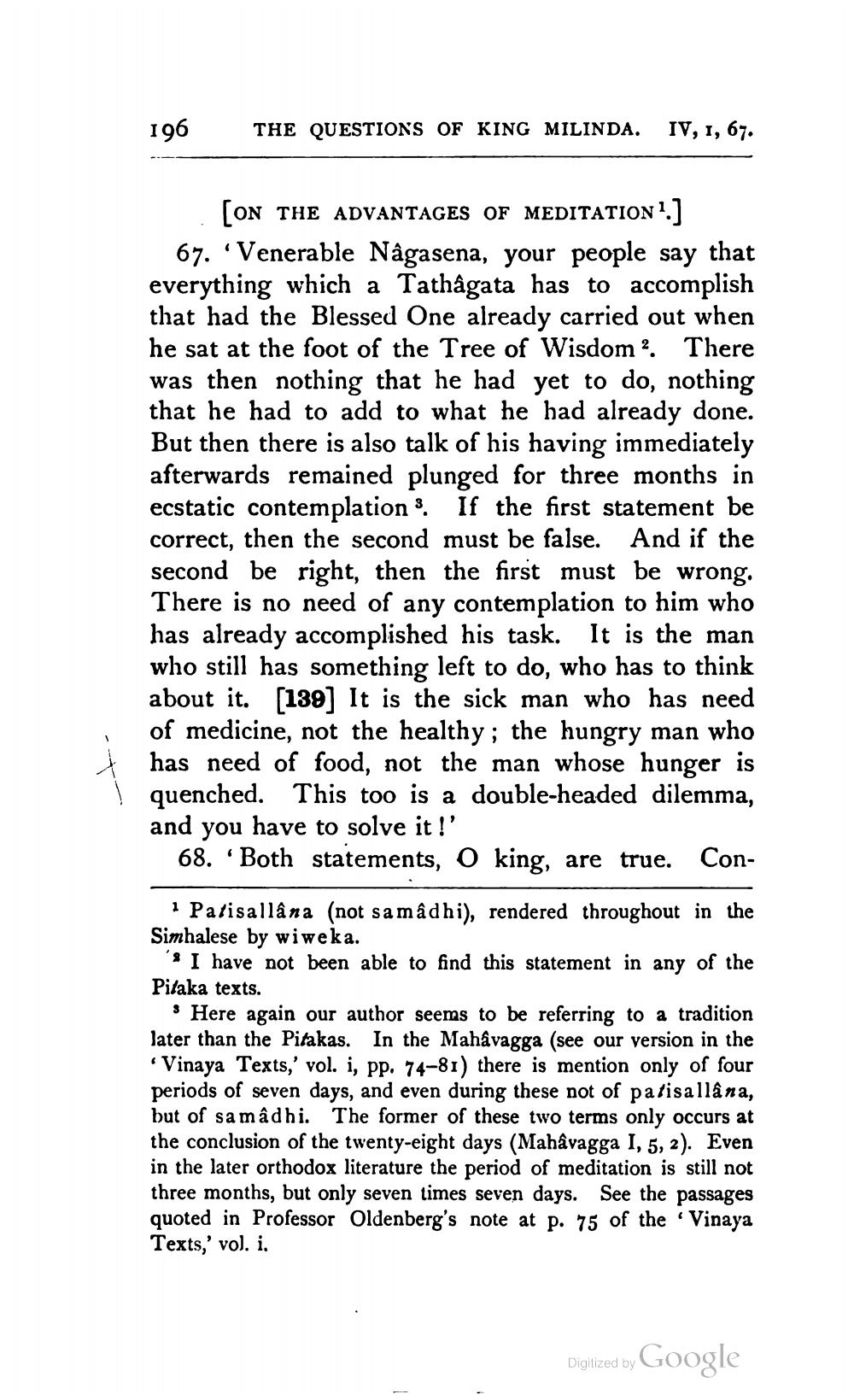________________
196
THE QUESTIONS OF KING MILINDA. IV, 1, 67.
[ON THE ADVANTAGES OF MEDITATION1.]
67. 'Venerable Nâgasena, your people say that everything which a Tathagata has to accomplish that had the Blessed One already carried out when he sat at the foot of the Tree of Wisdom 2. There was then nothing that he had yet to do, nothing that he had to add to what he had already done. But then there is also talk of his having immediately afterwards remained plunged for three months in ecstatic contemplation. If the first statement be correct, then the second must be false. And if the second be right, then the first must be wrong. There is no need of any contemplation to him who has already accomplished his task. It is the man who still has something left to do, who has to think about it. [139] It is the sick man who has need of medicine, not the healthy; the hungry man who has need of food, not the man whose hunger is quenched. This too is a double-headed dilemma, and you have to solve it!'
68. Both statements, O king, are true. Con
Patisallâna (not samâdhi), rendered throughout in the Simhalese by wiweka.
's I have not been able to find this statement in any of the Pilaka texts.
Here again our author seems to be referring to a tradition later than the Pitakas. In the Mahâvagga (see our version in the 'Vinaya Texts,' vol. i, pp. 74-81) there is mention only of four periods of seven days, and even during these not of patisallâna, but of samâdhi. The former of these two terms only occurs at the conclusion of the twenty-eight days (Mahâvagga I, 5, 2). Even in the later orthodox literature the period of meditation is still not three months, but only seven times seven days. See the passages quoted in Professor Oldenberg's note at p. 75 of the 'Vinaya Texts,' vol. i.
Digitized by Google




